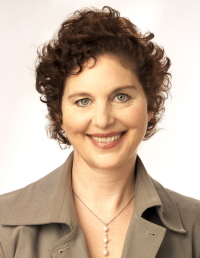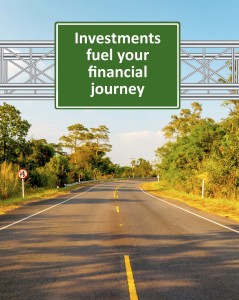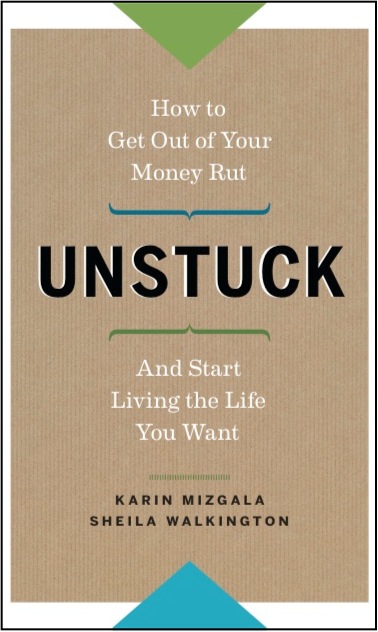
By Karin Mizgala
A financial plan is a roadmap
to help you define your financial life goals and to give you the tools, information and structure you need to organize your finances to live the life you want.
- How do I balance today’s goals with a secure financial future?
- Do I have enough money to retire comfortably?
- Which investments or financial products are suited to my needs?
- What do I need to know to make the best financial decisions?
A financial plan will help you answer these questions in an organized, structured manner. By creating a financial plan, you will know what steps you need to take to get you from where you are now to where you want to be with more confidence and greater ease.
A comprehensive written financial plan generally includes the following:
- A clarification of your short, medium and long term goals
- A statement of Net Worth
- An analysis of your cash inflows and outflows (budget and debt strategies)
- A review of your current investments and investment strategy advice
- Retirement/Financial Independence projections including pension decisions
- A review of your insurance needs, group benefits and estate plan with recommendations
- The action steps needed to implement your plan and stay on track
Do I need a financial plan?
If you are feeling anxious about your finances, a well-developed financial plan can give you the comfort, confidence and direction to ensure that you are on track to meeting your life goals and what steps to take if you’re not there yet.
Or if you are experiencing a major life change or transition such as retirement, marriage, divorce or job loss, the process of creating a financial plan will help you systematically consider and address the financial complexities these life changes bring.
Clients who have a financial plan report that they have a better handle on their cash flow, have a plan to pay down debt and are more prepared for emergencies. They have a better understanding of their investments, they know what to do to retire comfortably and have more peace of mind.
A Financial Planner typically provides a written financial plan which outlines your goals, problems and considerations, recommendations and an action plan. Although the planning document is a valuable tool, the real benefit is in the planning process itself. A trusted advisor who understands your goals, your relationship with money and the financial numbers can provide solutions to create more joy and ease in your financial life.
Here’s how one of our recent clients described the benefits of the financial planning process:
“I felt scattered and not really sure where to start or what specific areas to look at. Now I feel like I have been given a direction and a map to follow. I could see exactly what I needed to do, and I felt more confident following through with these steps knowing that there was someone I could ask if I ran into any problems. I also have tools that I can use to check up on my own financial health in the future.”
What is the difference between a Financial Planner and an Investment Advisor?
A Financial Planner uses the financial planning process to help you manage all aspects of your personal finances more successfully. All of your financial needs will be considered including: budgeting and savings, debt management, tax planning, investments, insurance, retirement and estate planning. The ideal Financial Planner will also place a strong emphasis on personal financial education so that you are better informed, more confident and in control of your financial affairs.
An Investment Advisor focuses primarily on recommending, implementing and managing your investments. Some Financial Planners also provide investment management services.
Financial planners generally fall into 2 categories:
1. Financial Planners licensed to sell investments or insurance
Typically this type of financial planner will provide you with a financial plan for free if you purchase (or plan to purchase) investments or insurance with them. Others referred to as “fee-based” financial planners may charge a fee for the plan then give you the option to invest or buy insurance from them.
The model of financial planners licensed to sell financial products is the most common one with the advantage of being a one-stop-shop for clients looking for financial planning and investment management. However, there is also a potential for conflict of interest in a model that blends planning advice and financial products. Ask for full disclosure on what services you can expect and how the planner will be compensated.
2. Financial Planners who don’t sell financial products
“Fee-only” Financial Planners or Money Coaches charge clients a fee either hourly or by project. Fees typically range between $1,500-$4,000 depending on the complexity of planning needs.
Some “fee-only” Money Coaches provide comprehensive financial plans and others will help you address specific issues such as getting out of debt or saving for the things you want.
Note: The terminology in the financial advice industry is not standardized so be sure to ask questions and to clarify what you can expect from your advisor no matter what model of financial advice works best for you.
How do I find a Financial Planner?
Finding the right financial planner usually takes some homework and investigation. You can start by asking friends or family for a referral and you are wise to interview more than one Financial Planner. You can get tips on questions to ask and how to find a planner on the Financial Planning Standards Counsel website. The personal finance magazine MoneySense also maintains a data base of “fee-only” financial planners.
The clearer you are on what you are looking for in terms of guidance and what you expect from the relationship, the better you will be able to find a Financial Planner that works for you. Do your homework, take advantage of complimentary consultations, ask questions and trust your instincts.
If you would like some support and guidance in creating your financial plan, check out our upcoming weekend workshop Smart Money Essentials offered through the Women’s Financial Learning Centre or book a complimentary consultation with one of our fee-only money coaches.


 As a fee-for-service financial planner it’s not unusual to be approached for a “quick” portfolio review. “Can you just look over my investments?” or “Can you tell me if I’m saving enough?” As much as it’s in my nature to want to help people, it would be unethical and unprofessional to advise someone without a comprehensive look at their finances and a clear understanding of their goals.
As a fee-for-service financial planner it’s not unusual to be approached for a “quick” portfolio review. “Can you just look over my investments?” or “Can you tell me if I’m saving enough?” As much as it’s in my nature to want to help people, it would be unethical and unprofessional to advise someone without a comprehensive look at their finances and a clear understanding of their goals.
 R’S GIFT
R’S GIFT
 Now is a good time to assess your financial health and knowledge. These days there’s a chill in the air and it’s not just the wintry weather!
Now is a good time to assess your financial health and knowledge. These days there’s a chill in the air and it’s not just the wintry weather!